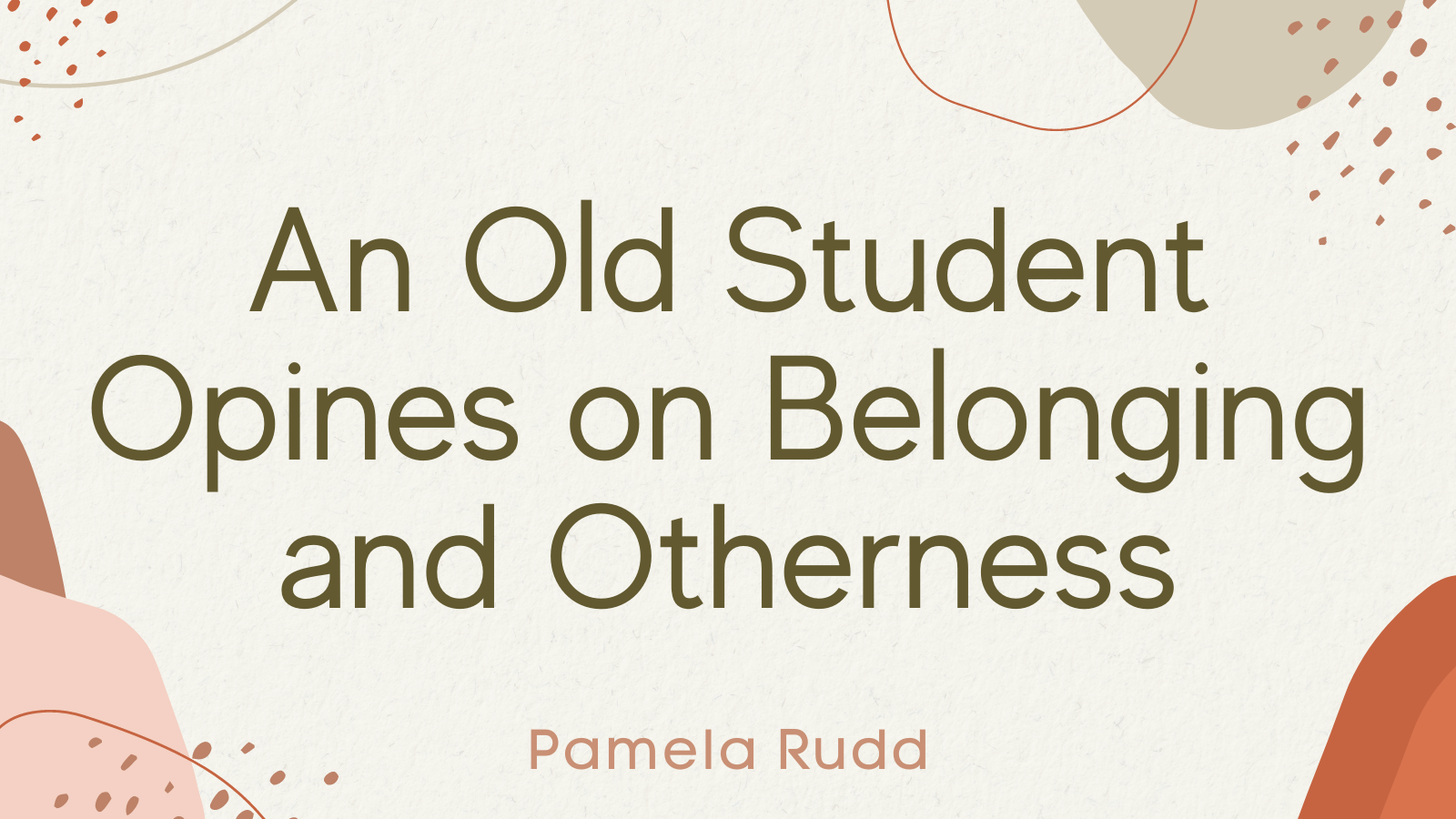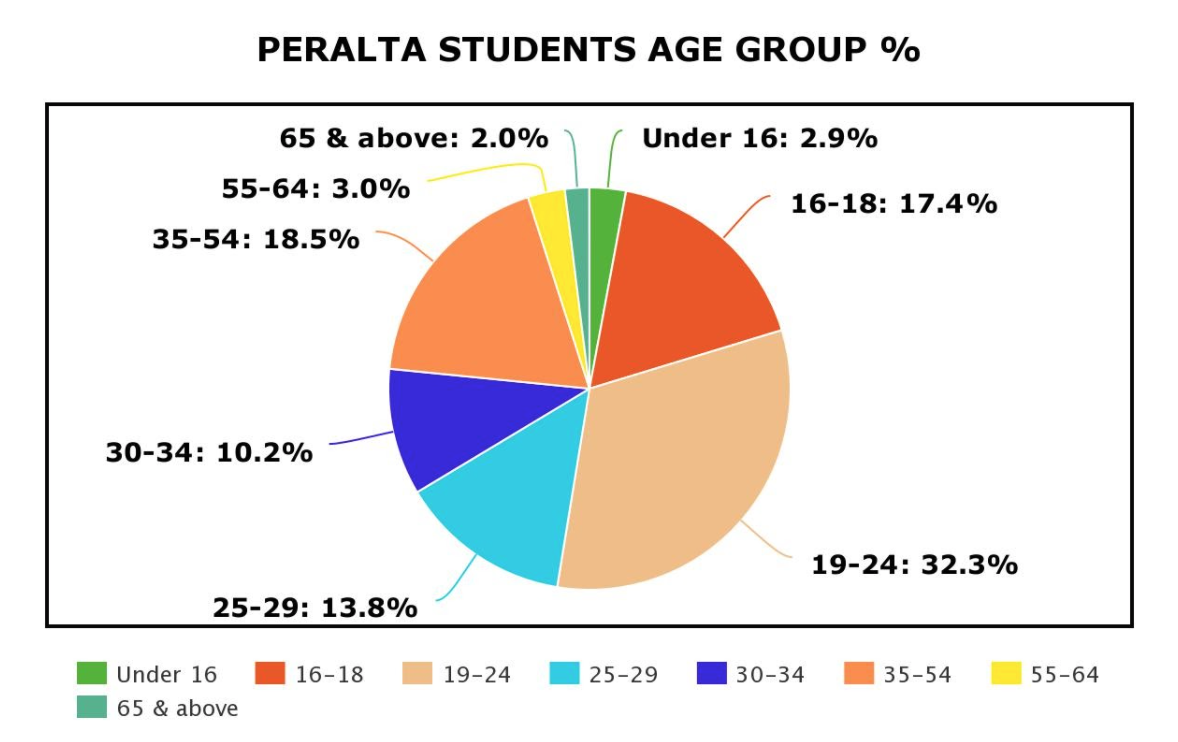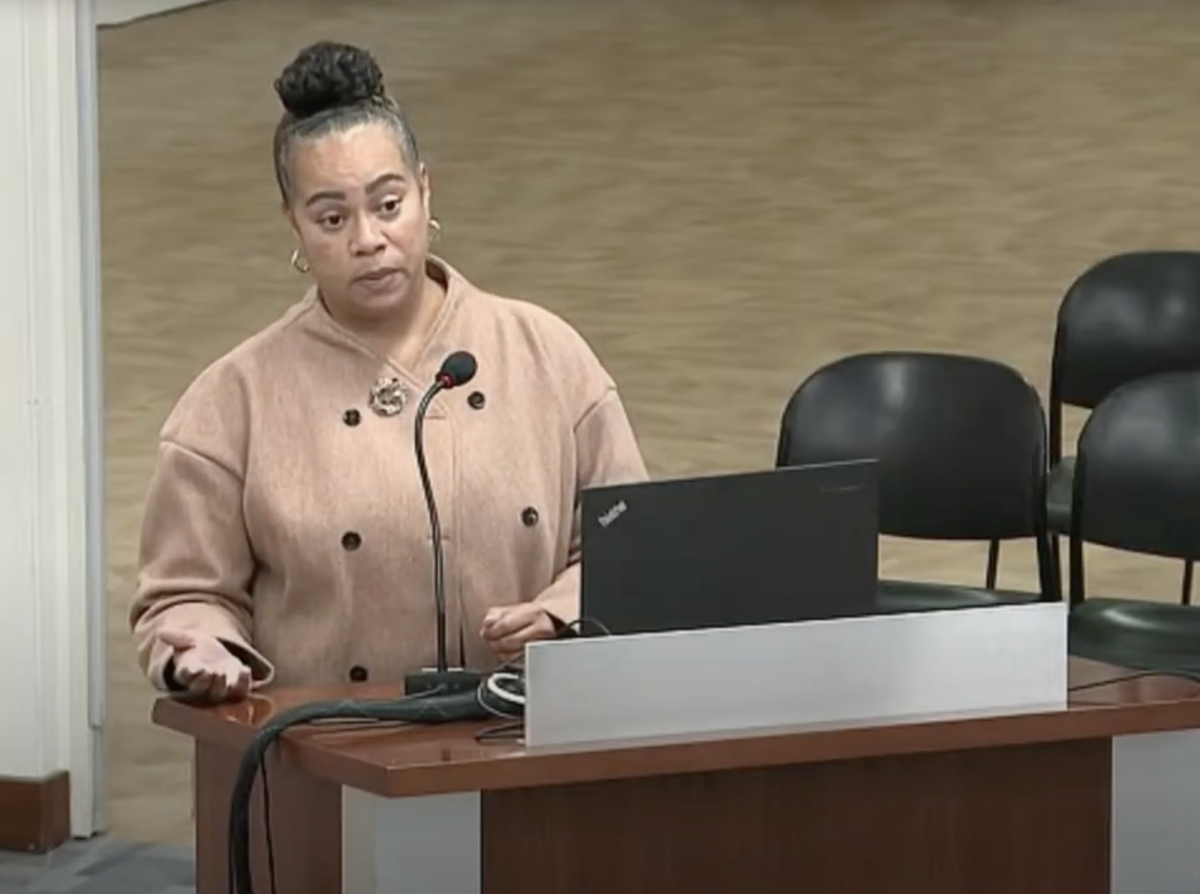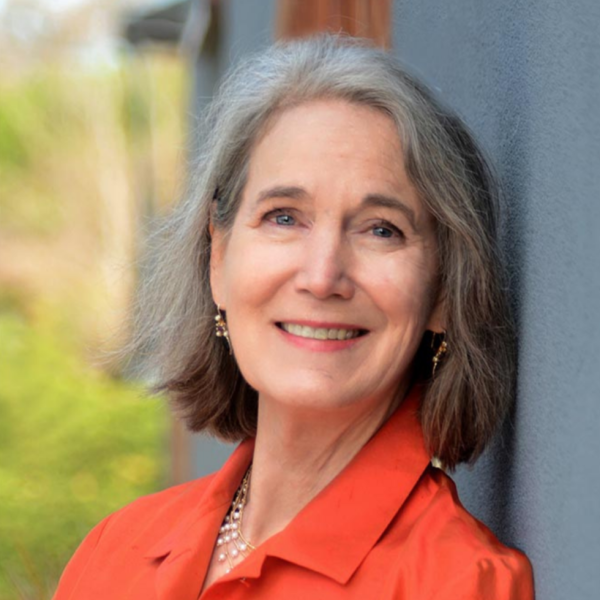
In America, old people are seen as irrelevant – It doesn’t matter your race, religion or political party. We don’t count for much. With our social security, our homes bought for the price of today’s cars, some see us as “leeches” just here to take from the kids. The sooner we die, the sooner you kids can collect our 401k’s.
It is true, we do use up more of the health care dollars that might be put to better use on the young or research and development. We may demand more handicap accessibility, which will drive up campus construction costs— ramps for our walkers and enough space to spin our wheelchairs around. We might not need feminine products in the bathroom, but an adult diaper dispenser, and accommodations for our lack of attention, increased impulsivity, and memory problems might be useful.
There is no doubt as “old” students we are likely to annoy our professors more than some kids. Technology isn’t our strong suit. We may ask for something to be repeated repeatedly, and we might get presumptuously arrogant knowing we have been reading and writing longer than our professors or some district administrators have been alive. We don’t mean any disrespect, and we acknowledge we can be annoying.
But like the rest of you, we want to belong. We want to be seen and acknowledged as fully human. We want the right to participate. We want to be connected and as with any other mammal, we depend on that connection to thrive and survive.
We also know what it’s like to be “othered” to be unseen and ignored – not quite fully human – just Granny in the rocking chair over in the corner – not a part. “Othering” is another way of saying to a marginalized group, “You don’t belong,” regardless if that group is LGBTQ+, the Black community, Asian, Muslim, the unhoused, the disabled, or us old folks.
People respond to “otherness” in differing ways. For some it may simply be an interpersonal transaction, for others – othering is institutional and systemic.
UC Berkeley professor John Powell, director of the Othering Belonging Institute (OBI) is an internationally recognized expert in the areas of civil rights, structural racism, housing, poverty, democracy, othering, bridging and belonging. He suggests that the opposite of othering is not sameness, but belonging. And, when an emotional connection occurs between two people or groups of people, that simple act of recognizing another as fully human builds a “bridge” that can be transformational.
According to Powell, different groups get “othered” differently. An older straight Black man, will be seen differently from a young gay Asian man, or a gay Black woman, or an elderly trans white man. People respond to “otherness” based on feelings of likability and competence. On one axis is the emotional continuum from “warmth to cold”, and the other axis “competent to incompetent.” The elderly and women are seen generally as likable, but incompetent, Asians are seen as competent, but cold.
Within this dynamic, “breaking” becomes the antithesis of “bridging”. It occurs when a group or individual is treated with suspicion. “Why are you here?” “You don’t belong.” Those individuals are seen as less than human, and the emotions of threat and fear create a “break”. This can happen when a gay Christian man comes out to his congregation, and is shunned, or when an old tired woman gets on a bus and no one offers her a seat. It can happen when an old journalism student speaks truth to power, and we are told we don’t belong.
When groups are polarized – Black and white, rich and poor, conservative and progressive, young and old Powell says we need a group response from our community leaders and influencers. We need leaders who bridge rather than break, and who can see the shared humanity in the Other.
When we can allow a connection to different communities we move beyond diversity. When we can turn towards each other we can move from mere “inclusiveness” to true “belonging”. This is reparative; it is healthy. It creates resilience and it can move us from polarization to a sense of belonging and being part of a larger community.
At the heart of restorative justice is “strengthening individual and community relationships to create a sense of belonging which sets the stage for repairing harm.” Restorative justice cannot succeed in an environment of fear and threats, and it cannot exist when we treat any group as “less than.”
Most of us are vulnerable to the desire to live in silos with just our own people – same race, same socio-economic status, same religion and political view, same age. There is not much to challenge us interpersonally and not much to combat the cognitive decline that begins in our twenties.
But step on to an urban community college campus and it is explosive, and alive. Aside from the fact that just finding a new bathroom creates new neural pathways, it is an opportunity to spend time with “others” who are not “our people”. And it is an opportunity to belong to a group of people who maybe have only one thing in common, and that is they attend a Peralta college.
According to the “contact hypothesis”, intergroup contact can reduce prejudice and promote tolerance and acceptance if the situation is not threatening or hostile. It’s not that the stereotypes change, but contact works because we “grow to like them anyway.”
The enrollment statistics for Fall 2021 showed a total of 18,415 students enrolled. Of those, 9,504 students were under the age of 24; 4,420 were between the ages of 25-34; and 4,311 were 35 years of age and older. Roughly 23% of the student body is over the age of 34.

Since 2016 the enrollment in PCCD has plummeted 17.1% between Fall 2019 and 2020 alone. This is in part due to the pandemic, but if this District is going to survive the funding cuts that come along with decreasing enrollment, you kids need us. We may not see eye to eye on some things but we are not dead yet.
In the 1970’s when the Black Panther Party was stepping on the stage from Merritt College to raise awareness about social injustice and police brutality, so rose the Gray Panthers to tackle the stereotypes that we were frail, impotent and dependent. They advocated for peace and an end to the Vietnam war and worked to abolish mandatory retirement ages.
The Gray Panthers continue to fight for a robust national health care system, fight ageism and are an “independent member led organization of activists seeking immediate and long-term social change.”
Our college may foster inclusiveness and diversity, but does it foster belonging? Do we pat ourselves on the back for diversity alone or do we foster a culture of belonging on every campus?” How do we as individual students “bridge” and how does the administration create opportunities to bridge, so that we all feel as if we belong?
As older students, we don’t want to go skateboarding with you, or share our drugs. We would kill to borrow that skinny dress of yours and flirt and dance until sun-up, but that time has passed – just as it will for you, but we want to belong – a little bit. We want to be challenged by your differences. It’s good for our health, and we want you kids to acknowledge we may have something to offer.
It might be that we babysit your children every now and then, or tutor, or mentor – we have had careers. We might leave our retirement money to the college and with it our desire to support your success – however you define that. We are sorry some of us left the planet in such a mess, but trust you are smart enough to find some fix, and just maybe we can find a path together.
We will never know what it is like to be a different race, or religion, or to grow up in your neighborhood, but as Powell says, “when we cut ourselves off from others we cut ourselves off from our own self.”
If all goes well, you will know what it is like to be old.



























Tom C • Nov 24, 2021 at 6:39 pm
A wonderful piece of writing. It makes me, as a senior myself, want to enroll in one of the Peralta colleges just to mingle with the other students.